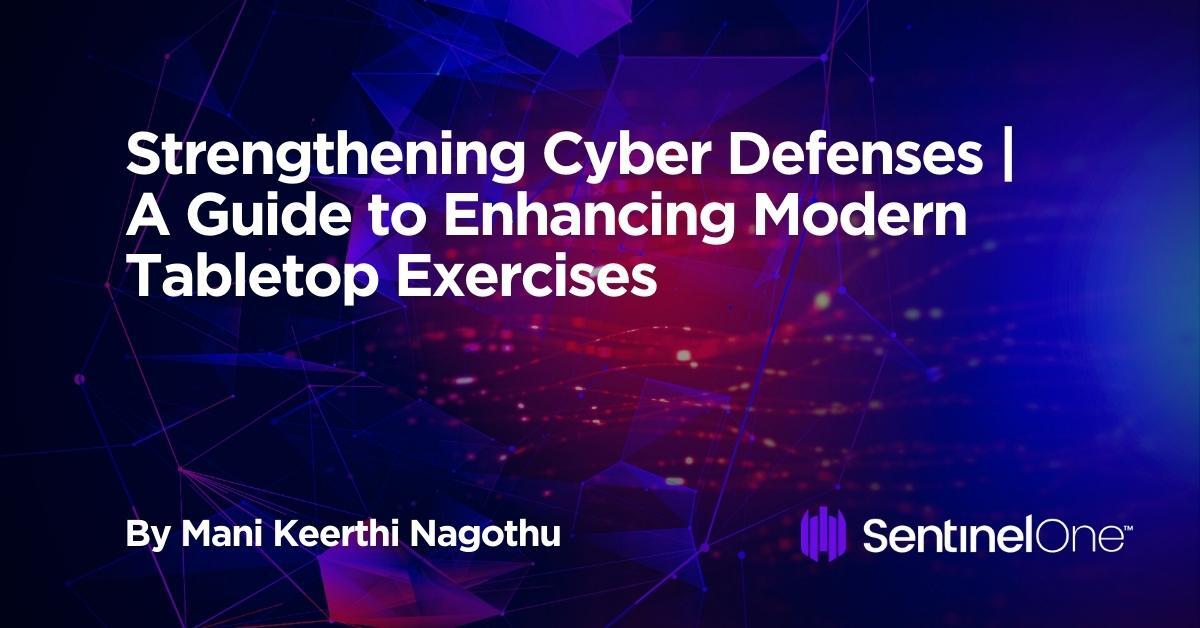Bolstering Cybersecurity in Healthcare with Cyber Tabletop Exercises
Cybersecurity in healthcare has become increasingly critical as digital transformation accelerates within the industry. With the proliferation of electronic health records (EHRs), telemedicine platforms, and interconnected medical devices, the sector faces heightened risks from cyber threats. These threats not only jeopardize patient data but also compromise the integrity of healthcare services, potentially endangering patient safety. To mitigate these risks effectively, healthcare organizations are turning to proactive measures such as cyber tabletop exercises.
Cyber tabletop exercises simulate real-world cybersecurity incidents in a controlled environment. They bring together key stakeholders from various departments within a healthcare organization to collaboratively respond to simulated cyber threats. These exercises aim to improve incident response capabilities, enhance communication channels, and identify gaps in existing cybersecurity protocols. By practicing in a risk-free setting, healthcare organizations can better prepare for actual cyber incidents, ensuring a swift and coordinated response when faced with a real threat.
Cyber tabletop exercises offer several tangible benefits to healthcare organizations. Firstly, they provide a structured environment to test and refine incident response plans without disrupting daily operations. Secondly, these exercises foster cross-departmental collaboration and communication, ensuring that all stakeholders understand their roles and responsibilities during a cyber crisis. Thirdly, by exposing vulnerabilities in a controlled setting, organizations can proactively strengthen their cybersecurity posture and mitigate potential risks before they escalate. Additionally, tabletop exercises enhance staff awareness of emerging cyber threats and best practices, promoting a culture of cybersecurity vigilance across the organization.

#1. Introduction to Cyber Tabletop Exercises
During a cyber tabletop exercise, participants are presented with a hypothetical cyber threat scenario, such as a ransomware attack on the hospital's network or a data breach involving patient records. Each stakeholder plays a role based on their responsibilities within the organization, from IT security teams and executive leadership to legal counsel and communications staff..
The exercise unfolds in real-time, with facilitators introducing new challenges and decisions as the scenario progresses. Participants must collaborate to assess the situation, make decisions under pressure, and implement response protocols to contain the simulated threat. Post-exercise, a comprehensive debriefing session evaluates the organization's performance, identifies areas for improvement, and updates incident response plans accordingly.
#2. Benefits of Cyber Tabletop Exercises
One of the primary benefits of cyber tabletop exercises is their ability to enhance organizational resilience against cyber threats. By simulating realistic scenarios, healthcare organizations can evaluate the effectiveness of their incident response plans and procedures. This includes assessing the speed and efficiency of communication channels, evaluating the adequacy of technical controls, and testing the organization's capacity to recover critical systems and data.
Moreover, tabletop exercises empower participants to practice decision-making under pressure, fostering confidence and readiness in handling real-world cyber incidents. These exercises also facilitate learning from mistakes in a safe environment, enabling continuous improvement of cybersecurity strategies and protocols. Ultimately, the investment in cyber tabletop exercises equips healthcare organizations with the tools and expertise necessary to protect patient data, maintain operational continuity, and uphold trust in the delivery of healthcare services.

Scenario design is critical in ensuring that tabletop exercises are relevant and realistic. Scenarios should reflect current and emerging cyber threats faced by healthcare organizations, such as ransomware attacks, phishing campaigns, or insider threats. The scenario should challenge participants while aligning with organizational goals and priorities for cybersecurity.
Diversity and serendipity in recommendations are also important aspects that enhance user engagement. Ensuring that recommendations include a variety of content and occasionally introduce users to unexpected but interesting items prevents monotony and encourages exploration of new interests.
Lastly, establishing a feedback loop is crucial for continuous improvement. By collecting and analyzing user feedback, these systems can adapt their models and algorithms to better reflect user preferences and behaviors over time. This iterative process enhances the accuracy and relevance of recommendations, ultimately improving user satisfaction and retention..
Facilitators play a crucial role in guiding the exercise, setting the pace, and introducing new developments to keep participants engaged. Evaluation criteria should be clearly defined to assess the exercise's objectives, including response time, decision-making effectiveness, communication protocols, and adherence to established policies and procedures
Post-exercise analysis involves a comprehensive debriefing session to identify strengths, weaknesses, and areas for improvement in the organization's incident response capabilities. Actionable insights gathered from the exercise inform updates to policies, procedures, training programs, and technical controls, enhancing the organization's overall cybersecurity resilience.
#3. Key Components of Effective Cyber Tabletop Exercises
Effective cyber tabletop exercises incorporate several key components to maximize their impact and value to healthcare organizations. These components include scenario design, participant selection, facilitation, evaluation criteria, and post-exercise analysis and improvement.
The scenario should challenge participants while aligning with organizational goals and priorities for cybersecurity. Participant selection should encompass a diverse range of roles and expertise, ensuring representation from IT, legal, compliance, executive leadership, and other relevant departments.